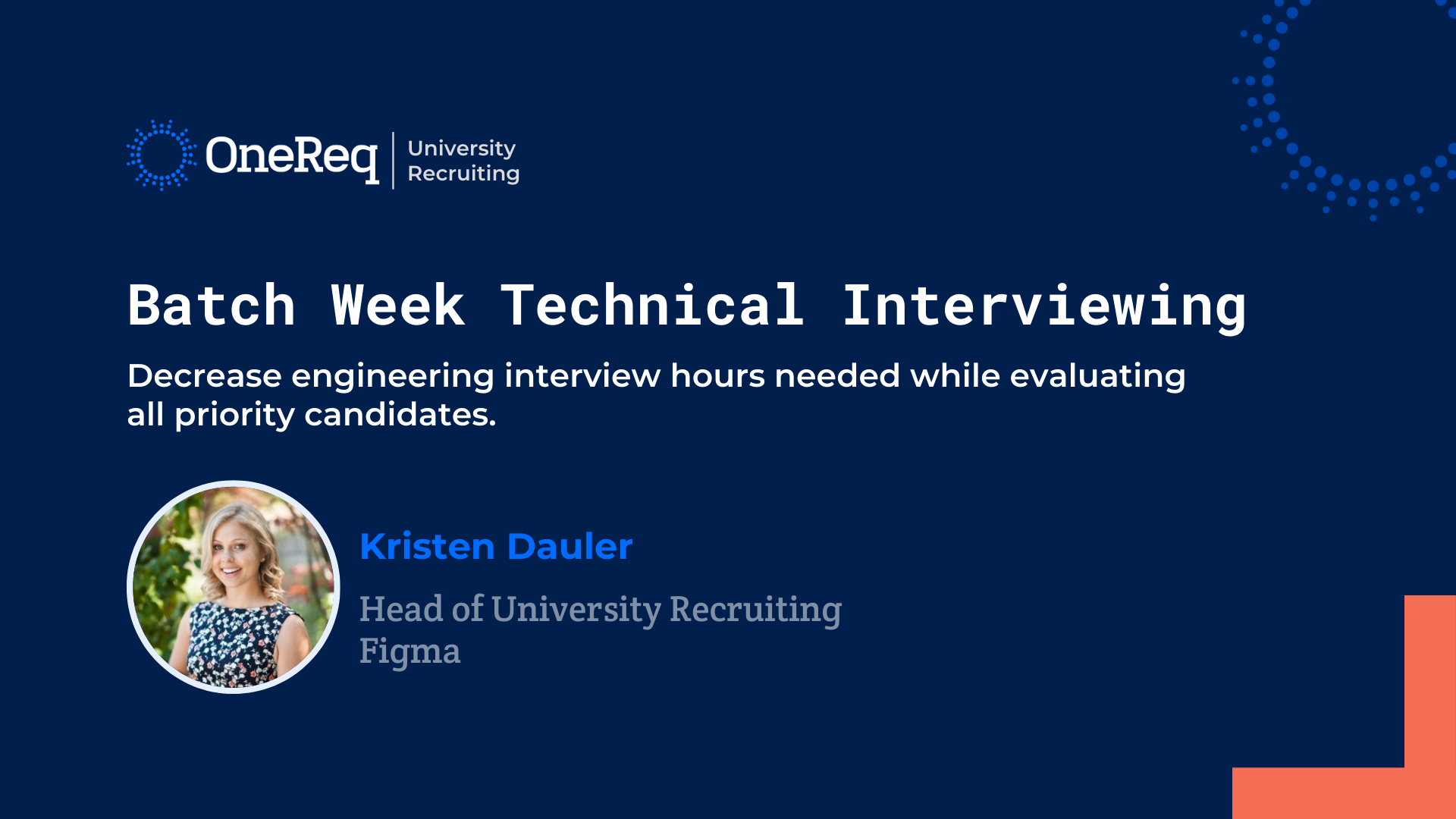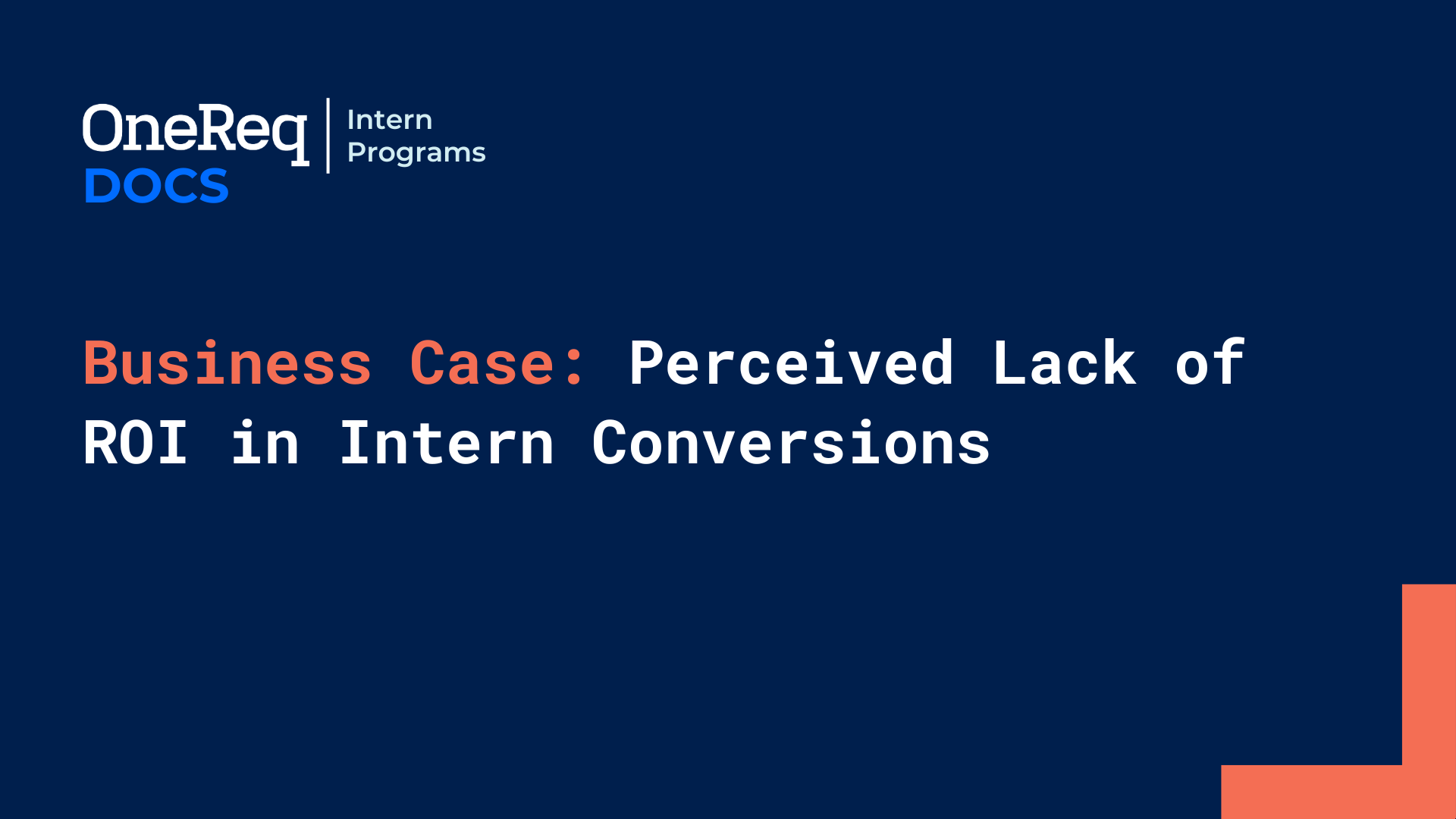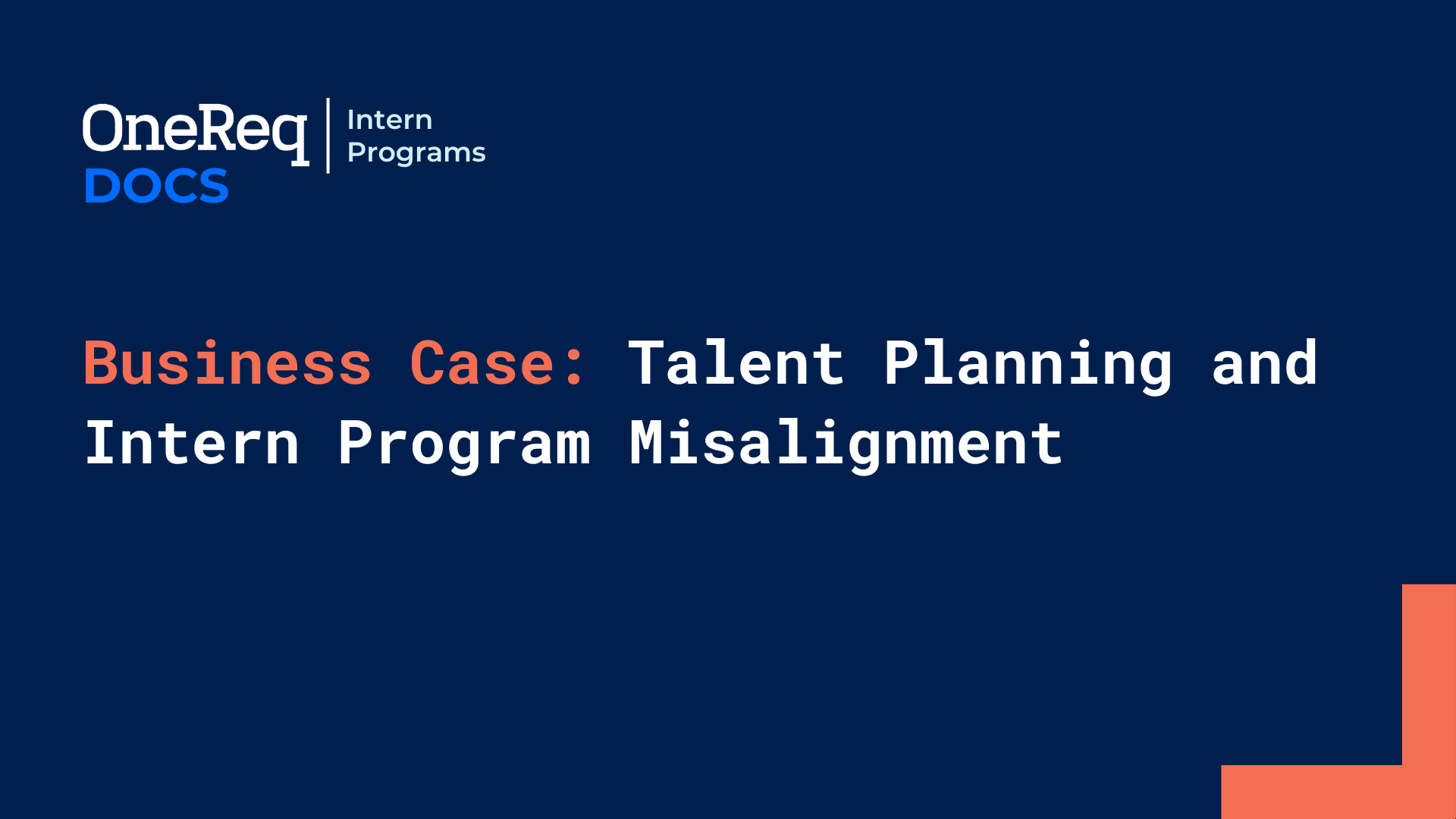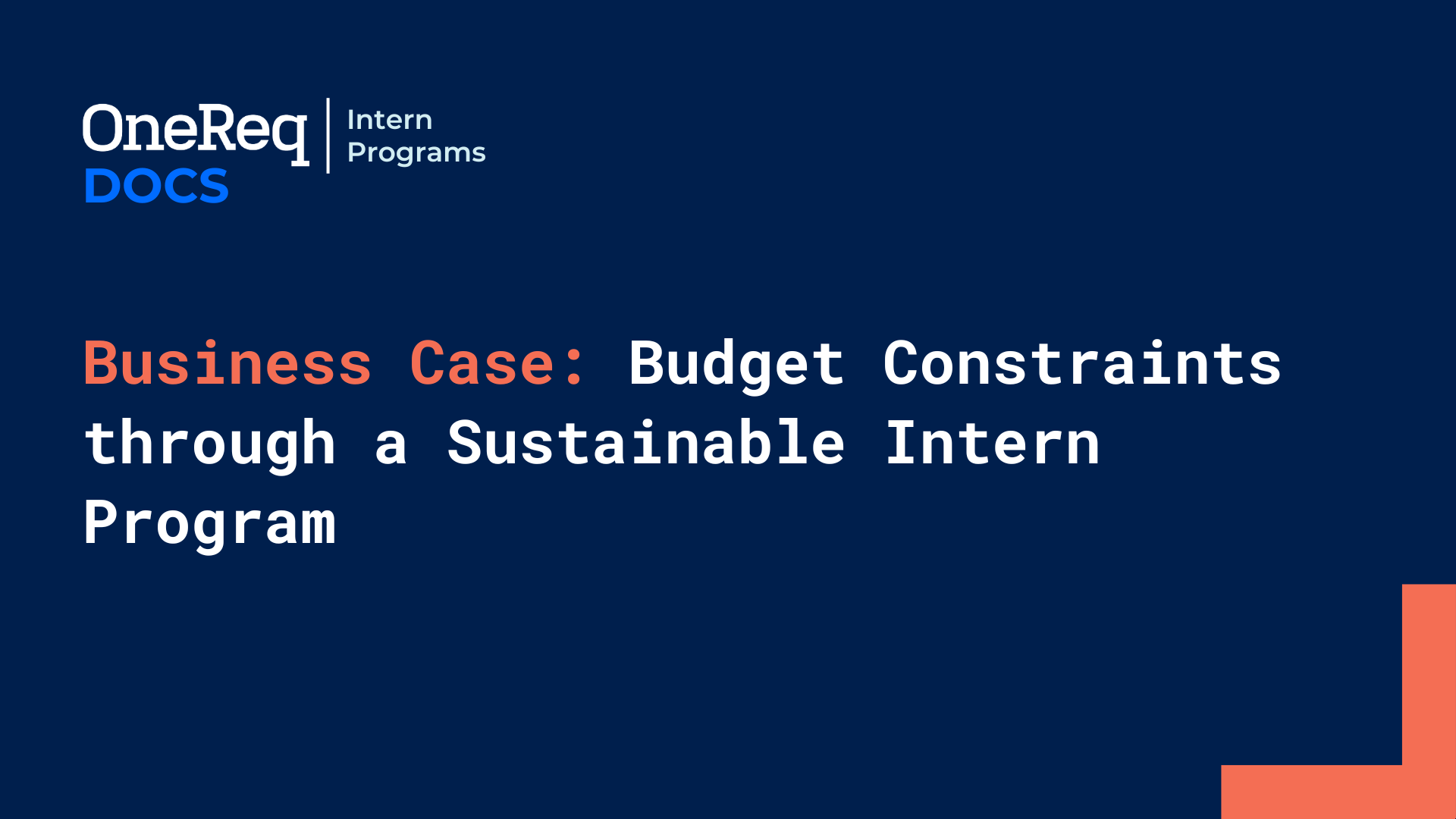A Batch Interview Week is where you allocate a specific week for all interview trained engineers to prioritize interviewing university candidates. At Figma, we were able to interview 38 interns and new grads in one week, with each engineer committing one hour to interviewing per day (5 interviews/week). We came out of Batch Week filling all remaining new grad headcount and a sizable chunk of our intern headcount leaving our engineers with a much lighter interview load.
Key Outcomes
- Interview all the needed students before popular offer deadlines of early November
- Decrease Engineering interview hours needed approaching the holidays.
Things to Consider
Consult with engineering leadership on when to schedule the Batch Week in order to avoid any major sprints or product releases. Make sure to prepare your engineering interviewers at least three weeks before the Batch Week. It’s important to get them invested and excited knowing that their following weeks would be lighter in interviews, and to celebrate the impact they will have on our hiring efforts.
“It’s a good idea to reward the team. At Figma, we gave a lot of recognition to those interviewers, company-wide, which was a huge help in getting everyone onboard.”
Batch Week Operational Template
*All numbers below are placeholders, make sure to run the math on your candidate pipeline, interviewer count, and hours to figure out what your Batch Week will look like.
Purpose of the Batch Week
We estimate needing 100 – 150 onsite interviews between August and November to fill our intern and new grad headcount. Given this is a high volume of interviews for our Eng team as well as our Coordination team of one, we anticipate that blocking off one week solely for UR interviews will alleviate teams in the weeks surrounding and allow for more candidates to get through the process before major deadlines (10/30).
Goal
Complete a maximum of 40 intern and new grad interviews between Monday, 10/5 and Friday, 10/9 (including no-meeting Wednesday). Each engineer who is calibrated for university interviews will complete one interview per day, either in the morning or afternoon shift. You can view an example schedule here [Link to a sample Schedule] but please note, the engineers are batched in groups on this spreadsheet, however, in an effort to mitigate bias and candidate comparison, we will not group them together. This is simply an example to portray how many interviews we can conduct in one week.
Why are we optimizing for October?
We feel this is the best time to avoid any conflict with the [Product or feature] launch and to be able to conduct interviewer training beforehand so our interviewers feel well prepared. Given a popular deadline is Friday, October 30th for return offers, we prefer not to push this any later to allow time to debrief, extend offers, and have maximum time for selling strategy.
How will we plan this?
- Any candidate that we move forward with in September without deadlines before October 30th will be added into the batch day schedule
- We’ll work off a clean spreadsheet with designed interview times and the recruiting team will work together to ensure no two candidates meet with exactly the same panel and that the panel is diverse in terms of background, seniority, tenure, and gender.
- The recruiting team will work off of the interviewer list and ensure with managers that those selected team members are eligible to participate with their current workload.
- Interviewers should be made aware of Batch Week in early September along with expectations so when they’re scheduled 5x in one week, there are no questions or push back.
- In an effort to have clear distinction between candidates, we’ll add 15-minute feedback calendar blocks for each interviewer after the morning shift and one after the afternoon shift.
- Depending on headcount progress, we will likely slot 60% of interviews to interns and prioritize them earlier in the week, with new grads ending on Thursday and Friday
- We’ll continue to utilize Slack for candidate information and for engineers to decide on interview questions.
- Debriefs: I will bucket feedback into low (1-2s), medium, and high (4s) feedback packets. We’ll spend the bulk of our time discussing mixed feedback since low and high will likely require less time to make a hire/no hire decision. The following week on Wednesday, Engineer Managers will review the feedback packets and make a no-hire/hire decision. If feedback is not thorough enough, we will then schedule an in-person feedback session with the panel. (Incentive to engineers: If you write thorough feedback, you don’t have to sit in a debrief!)
- For interns we want to move forward with, the following week, 10/12, will be dedicated to their 30-minute manager values/sell call and I’ll be focussing that time on pushing new grad offers through.
- Engineer interviews will be recognized on the general company public Slack channel (all individually tagged) and we have budget to send each engineer a Starbucks gift card on that Friday as an extra thank-you (as a “here’s some of your energy back”;)
*Progress to goals and stats will be shared in the EM Thursday weeklys*
Contributors
Kristen Dauler is the Head of University Recruiting at Figma where she leads the team in building scalable and diverse early talent programs.





